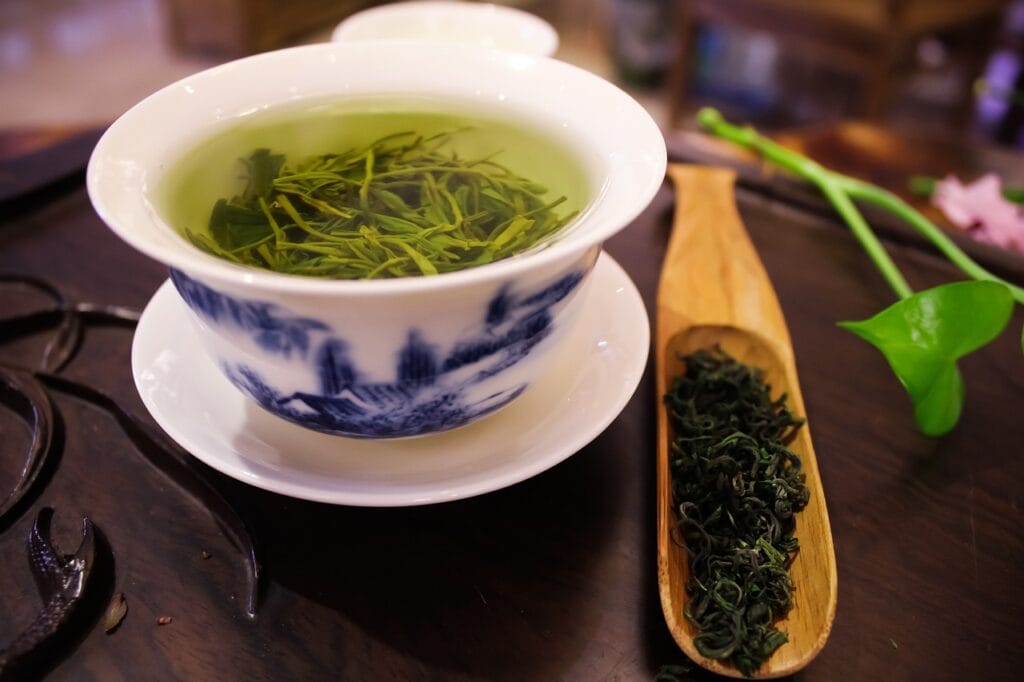Green Tea: A Super Drink for Health and Wellness
Green tea has been revered for centuries, not only for its refreshing taste but also for its numerous health benefits. Originating in China and widely consumed in East Asia, green tea has become globally popular as a healthy alternative to other beverages. Rich in antioxidants and various nutrients, it is often considered a key component of a balanced diet and wellness routine. In this blog, we’ll dive into the importance, benefits, nutritional value, side effects, and uses of green tea.
Table of Contents
Importance of Green Tea
Green tea is derived from the leaves of the Camellia sinensis plant and is one of the least processed forms of tea. Unlike black tea, green tea undergoes minimal oxidation, preserving the rich store of polyphenols and antioxidants, particularly catechins, which provide numerous health benefits.
In today’s fast-paced world, green tea is celebrated for its ability to promote physical and mental well-being. Its significance goes beyond being a simple beverage; green tea is linked to improved heart health, better brain function, and weight management. Its versatility in preparation—whether consumed hot, iced, or blended into smoothies—makes it a convenient option for health-conscious individuals.
Health Benefits of Green Tea
- Rich in Antioxidants
Green tea is loaded with antioxidants, particularly a type of catechin called epigallocatechin gallate (EGCG). These antioxidants help combat oxidative stress by neutralizing free radicals, thereby protecting the body’s cells from damage. Antioxidants in green tea are also linked to reducing the risk of chronic diseases such as cancer and cardiovascular diseases. - Boosts Brain Function
Although green tea contains less caffeine than coffee, it provides enough to have a stimulating effect without causing jitters. In addition, green tea contains L-theanine, an amino acid that works synergistically with caffeine to enhance brain function. This combination improves focus, attention, and reaction time, while also promoting relaxation and reducing anxiety. - Promotes Fat Loss
Green tea has been shown to boost metabolism and aid in fat burning. It’s a common ingredient in weight loss supplements due to its ability to increase the body’s calorie-burning potential. Studies suggest that the catechins in green tea help reduce body fat, especially in the abdominal area, making it a useful tool in weight management. - Lowers Risk of Heart Disease
Regular consumption of green tea may lower the risk of cardiovascular diseases. It helps improve cholesterol levels, reduce triglycerides, and prevent the oxidation of LDL cholesterol, which is a key factor in heart disease. The polyphenols in green tea also help maintain healthy blood pressure and promote better blood circulation. - Improves Skin Health
Green tea’s anti-inflammatory and antioxidant properties make it beneficial for skin health. It helps reduce signs of aging, fights acne, and protects the skin from damage caused by UV radiation. The polyphenols in green tea can help soothe irritated skin and even out skin tone.
Nutritional Value of Green Tea (Per 100 ml)
| Nutrient | Amount | % Daily Value (DV) |
|---|---|---|
| Calories | 1 kcal | – |
| Protein | 0 g | – |
| Total Fat | 0 g | – |
| Carbohydrates | 0 g | – |
| Caffeine | 30-50 mg | – |
| Catechins | 60-125 mg | – |
| Vitamin C | 1 mg | 1% |
| Potassium | 27 mg | 1% |
| Fluoride | 0.1 mg | – |

Green tea is low in calories, with a negligible amount of protein, fats, and carbohydrates. Its most significant components are the catechins and caffeine, which provide a range of health benefits, from weight management to cognitive enhancement.
Common Uses of Green Tea
| Use | Description |
|---|---|
| Hot Green Tea | The traditional way to enjoy green tea, brewed with hot water. |
| Iced Green Tea | A refreshing, cold version often sweetened with honey or lemon. |
| Matcha | A powdered form of green tea used in lattes, smoothies, or desserts. |
| Green Tea Extract | Used as a supplement for its concentrated antioxidants and fat-burning properties. |
| Skin Care | Green tea extract is a common ingredient in skincare products for its anti-aging and soothing properties. |
Potential Side Effects and Risks of Green Tea
While green tea is generally safe for most people, consuming it in excess or in certain conditions can lead to adverse effects. Here are a few potential side effects:

- Caffeine Sensitivity
Although green tea contains less caffeine than coffee, people who are sensitive to caffeine may experience side effects such as insomnia, anxiety, increased heart rate, or jitteriness. For individuals who are sensitive to caffeine, it is advisable to limit their intake of green tea or opt for decaffeinated versions. - Iron Absorption Inhibition
The catechins in green tea can interfere with the absorption of iron from food. This can be particularly concerning for people with iron deficiency or anemia. To minimize this effect, avoid drinking green tea with meals and consume it between meals instead. - Liver Toxicity
In rare cases, excessive consumption of green tea or green tea supplements can lead to liver toxicity. This is more commonly associated with concentrated extracts rather than the beverage itself. It’s important to moderate your intake and consult a healthcare professional if taking green tea supplements. - Potential Drug Interactions
Green tea may interact with certain medications, including blood thinners like warfarin and blood pressure medications. If you are taking prescription medications, it’s best to consult your doctor before consuming large amounts of green tea or supplements.

Conclusion
Green tea is a nutrient-packed beverage with a rich history and impressive health benefits. From improving brain function and promoting fat loss to reducing the risk of heart disease and cancer, green tea offers a multitude of reasons to make it a daily habit. Its low-calorie content, coupled with its antioxidant richness, makes it an excellent choice for those looking to boost their wellness naturally.
However, it’s important to be mindful of the potential side effects, especially for those sensitive to caffeine or with pre-existing medical conditions. With moderate consumption, green tea can be a delightful and health-promoting addition to your diet, whether enjoyed hot, iced, or in the form of matcha.
Incorporating green tea into your daily routine can help support a healthy lifestyle and provide a natural source of energy and antioxidants.